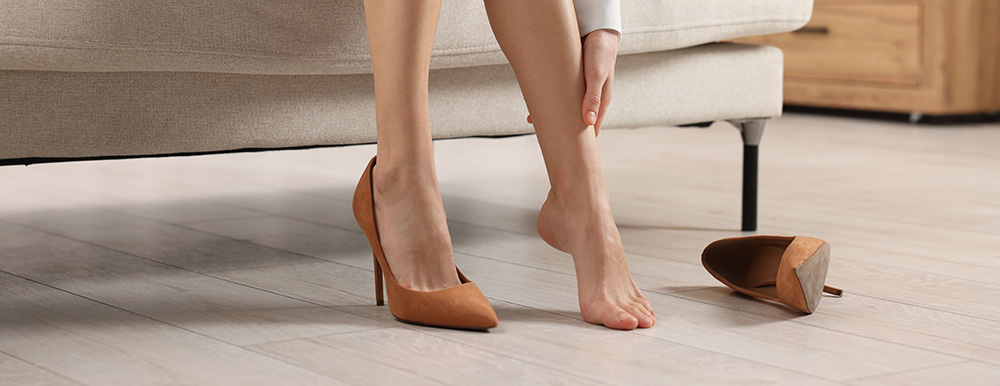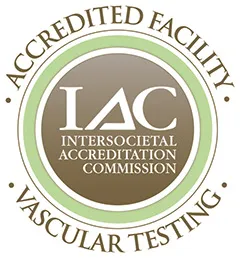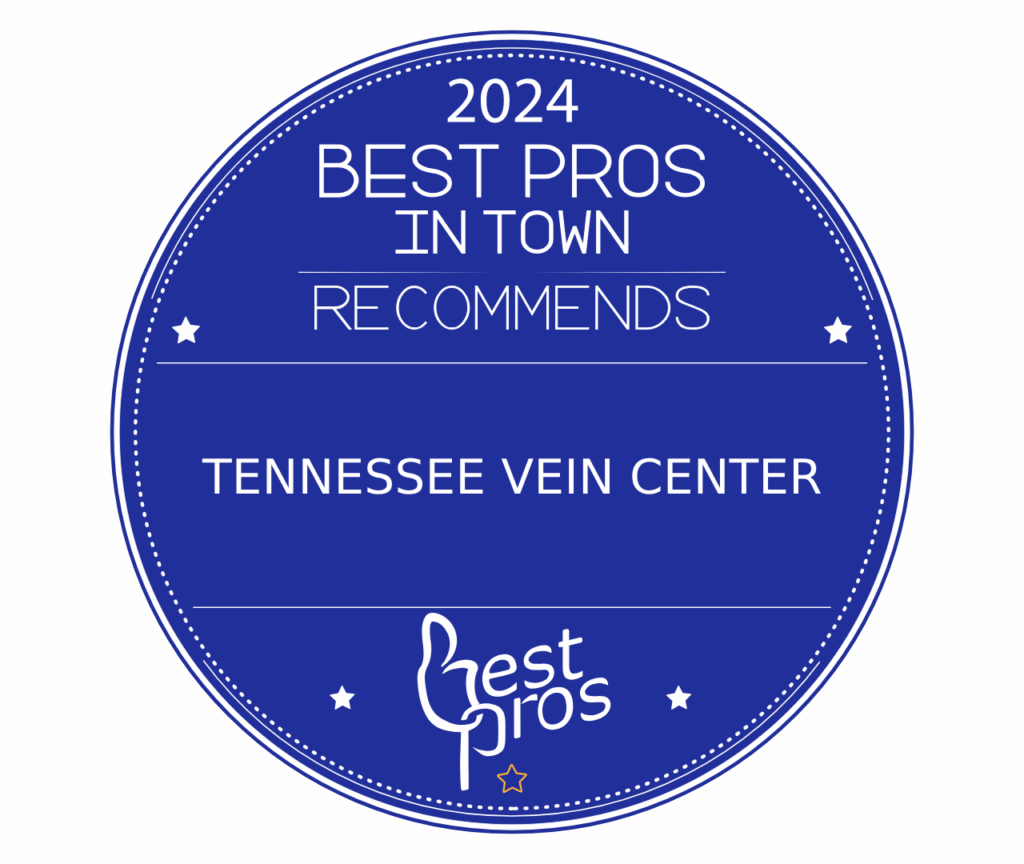High heels are a fashion favorite for many, offering a boost in height and confidence, but while they may complement your outfit, wearing heels too often can take a toll on your vascular health.
From affecting circulation to increasing vein pressure, high heels can contribute to discomfort and potentially raise your risk for varicose or spider veins.
In this blog post, we’ll explore how heels impact your veins, what signs to watch for, and how to protect your leg health while still enjoying your favorite shoes. Continue reading to learn more.
How High Heels Affect Vein Health
Your veins work hard to move blood back toward your heart, often against gravity.
Leg muscles, especially in your calves, play an essential role in this process, acting like a “pump” to keep blood moving.
High heels can interfere with this natural pumping motion.
In fact, according to a 2012 study published in the National Library of Medicine, wearing high heels, especially stilettos and platform styles, makes the calf muscles less effective at pumping blood back toward the heart.
Compared to walking barefoot, heels resulted in poorer blood flow and more blood pooling in the legs, which may increase the risk of vein problems.
Why Heel Height Matters for Blood Flow
The higher the heel, the more your foot is angled downward.
This position shortens and tightens the calf muscles, reducing their ability to contract fully.
Without full contraction, blood flow from your legs to your heart slows down, which can lead to pooling in the lower legs
The Science Behind Vein Pressure and Posture
Wearing high heels shifts your body weight forward, altering your posture and putting more strain on your legs.
This change in alignment increases venous pressure, especially in the lower legs and ankles.
Over time, this added pressure can weaken vein valves, making it harder for blood to flow efficiently and increasing the risk of vein problems.
Do High Heels Cause Varicose or Spider Veins?
High heels don’t directly cause varicose or spider veins, but they can make existing vein issues worse or speed up their development if you’re already at risk.
Factors like genetics, pregnancy, age, and prolonged standing or sitting contribute significantly to the development of varicose veins.
However, frequent high heel use can contribute to poor circulation, which may aggravate symptoms.
Warning Signs Your Veins May Be Affected
If you regularly wear high heels and notice any of the following signs of vein disease, it may be time to ditch the high heels and schedule a vascular consultation:
- Aching or throbbing in your legs after wearing heels.
- Swelling around the ankles or calves.
- Visible spider or varicose veins becoming more pronounced.
- A feeling of heaviness or fatigue in your legs.
- Discomfort that improves when you switch to flat shoes.
Long-Term Effects of Wearing High Heels
Over time, the posture changes and muscle restrictions caused by high heels can:
- Increase pressure inside the leg veins.
- Contribute to chronic venous insufficiency (CVI) or other vein-related conditions.
- Aggravate existing varicose or spider veins.
- Reduce overall lower leg muscle strength, which can slow circulation.
While occasional use is generally fine, wearing heels frequently and for long periods may have a cumulative impact on vein health.
How to Protect Your Vein Health If You Wear Heels
You don’t have to give up heels entirely, but you can take steps to minimize their impact:
- Limit heel height to two inches or less for regular wear.
- Choose wedges or block heels for more even weight distribution.
- Alternate between heels and supportive flats during the day.
- Take short walking breaks to encourage calf muscle activity.
- Wear compression stockings when you know you’ll be on your feet for long periods.
Vein-Friendly Alternatives to High Heels
If you’re looking for healthier shoe options that still look stylish:
- Low-heeled pumps or kitten heels.
- Dressy flats with arch support.
- Shoes with cushioned insoles to absorb shock.
- Sneakers designed for dress or business-casual wear.
These alternatives allow you to maintain a polished look without placing unnecessary strain on your veins.
Why Trust Tennessee Vein Center with Your Leg Health?
If you’ve noticed symptoms such as swelling, aching, heaviness, or visible veins, it’s important to seek evaluation from a vein specialist.
Early intervention can prevent complications and improve comfort.
At Tennessee Vein Center, we provide thorough vein assessments and create personalized care plans.
During your consultation, we can also discuss minimally invasive vein treatments to improve circulation and relieve symptoms. Our team will help you protect your vein health, without making you sacrifice your style.
Contact us today to learn more.


